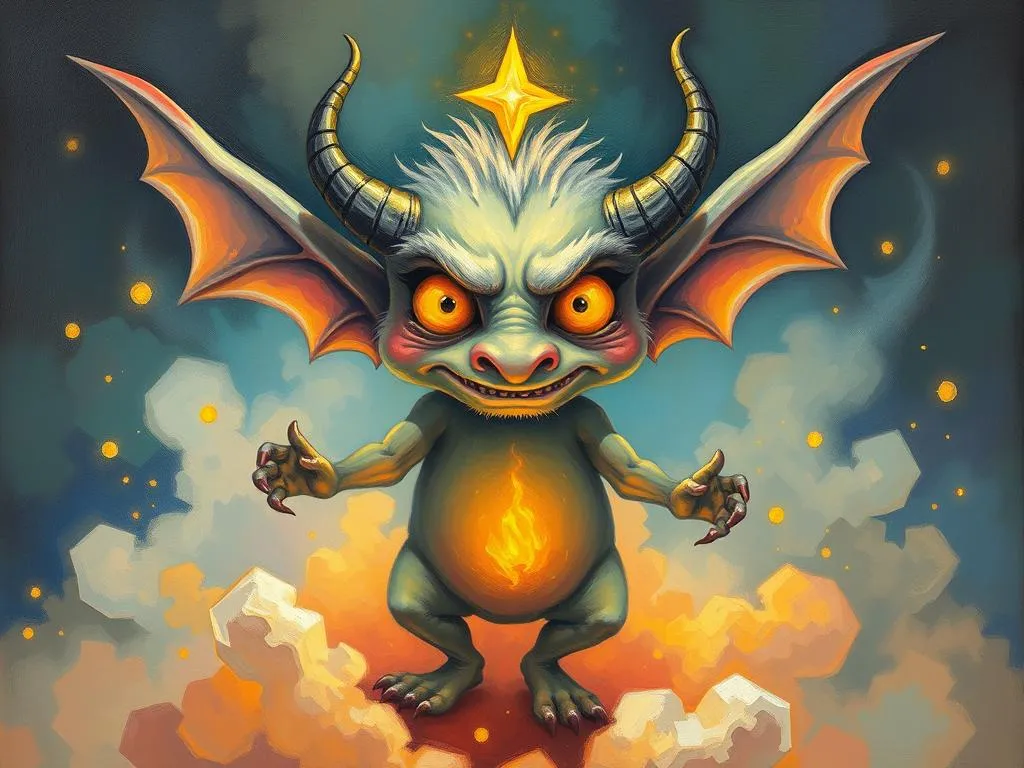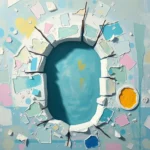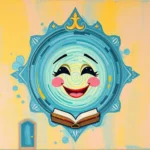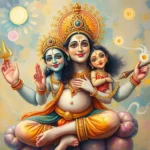
Have you ever woken up in a cold sweat, your heart racing from a dream that felt all too real? Maybe it was a figure cloaked in shadow, eyes burning with intensity, or a sense of suffocation as a dark presence loomed over you. Dreams of demons can evoke feelings of fear, confusion, and even curiosity. They serve as a portal into the depths of our subconscious, revealing hidden fears, unresolved conflicts, and aspects of ourselves we may not fully understand.
In this exploration, we’ll unravel the layers of the demon dream symbol, drawing from various cultural perspectives, psychological theories, and practical insights that can illuminate these nighttime encounters. Whether you’ve faced a personal demon or simply want to understand what these dreams might mean for you, let’s dive into this eerie yet fascinating realm together.
Shadows and Symbols: Dissecting the Demon
Demons in dreams often symbolize repressed emotions, guilt, and inner turmoil. They can represent the parts of ourselves that we fear or reject, emerging from the shadows of our subconscious. In many cultures, demons are metaphors for the darker aspects of human nature, such as anger, jealousy, or despair. For instance, in medieval European folklore, demons were seen as entities that could possess individuals, mirroring the struggles of mental health that people face today.
From a psychological standpoint, Carl Jung’s theory of the shadow self provides a framework for understanding these dreams. Jung believed that the shadow encompasses the traits we consider undesirable or shameful. When we dream of demons, we may be confronting these suppressed aspects, urging us to acknowledge and integrate them into our conscious lives.
In some spiritual traditions, demons are understood as external forces that challenge our spirit or morality. This can align with the idea that these dreams are not just manifestations of fear but also lessons in resilience and personal strength. If we can face our demons, we can emerge stronger and more self-aware.
To further illustrate, let’s consider the color of the demon. A red demon might symbolize anger or passion, whereas a black one could represent deep-seated fears or depression. The setting of the dream also plays a crucial role. A demon in a familiar place might indicate that your fears are rooted in your daily life, while a demon in an unfamiliar territory could suggest that you are facing the unknown or entering new stages of life.
Through the Abyss: Encounters with Demons
Dreams often present us with scenarios that reveal our deepest fears and desires. Here are a few typical scenarios that illustrate how we encounter demons in our dreams:
1. The Pursuer:
You find yourself being chased by a demon through a dark forest. Every time you look back, its grotesque face inches closer, panic rising within you. This dream often reflects a situation in your waking life where you feel overwhelmed or pressured. The demon represents an issue you are trying to escape rather than confront. Consider what you might be avoiding and how facing it could empower you.
2. The Confrontation:
In a dream, you stand face-to-face with a menacing demon, and instead of running away, you confront it. Surprisingly, it begins to dissolve into mist. This scenario can signify personal growth and the courage to face your fears. It suggests that you are in a process of acknowledging your inner struggles and learning to manage them.
3. The Possession:
You dream that you are possessed by a demon, unable to control your actions or emotions. This often symbolizes feelings of being overwhelmed by external circumstances or internal conflicts. Perhaps you are experiencing a lack of control in your life, and the dream is a reflection of that chaos. Take time to assess the areas in your life where you feel powerless and seek ways to regain your autonomy.
4. The Transformation:
In another dream, you transform into a demon yourself, reveling in power and chaos. This can indicate a struggle with your darker impulses or a desire for liberation from societal constraints. While it may feel unsettling, it’s an invitation to explore your passions and desires without judgment. Reflect on what aspects of yourself you suppress and how embracing them could lead to a more authentic life.
5. The Guardian:
You encounter a demon that, instead of attacking, stands guard, watching over you. This can be a surprising twist, suggesting that what you perceive as a threat may actually be a protective force. It can indicate that you are developing resilience and that your fears are there to teach you important life lessons. Consider how embracing your fears could lead to growth and understanding.
Embracing the Darkness: Pathways to Personal Growth
Understanding dreams about demons is not just about deciphering their symbolism; it’s about embarking on a journey of self-discovery and personal growth. Here are some practical steps to help you engage with these dreams constructively:
1. Keep a Dream Journal:
Start recording your dreams as soon as you wake up. Note down any details—emotions, colors, settings, and the actions of the demon. This practice can help you identify patterns and themes over time, offering insights into your subconscious mind. Revisiting these notes can reveal your evolving relationship with your fears.
2. Reflect and Analyze:
After documenting your dreams, take time to reflect on their meanings. Ask yourself questions like: What emotions did I feel? What was the demon representing in my life? This reflective practice can help you connect your dreams with your waking life, providing clarity on areas needing attention.
3. Engage with Your Fears:
Consider confronting your fears in a safe space. This could involve visualization techniques where you imagine facing your demon and transforming it into something less threatening. This practice encourages empowerment, allowing you to redefine your relationship with fear.
4. Seek Support:
Discuss your dreams with trusted friends or a therapist. Sharing your experiences can provide new perspectives and insights that you may not have considered. Engaging in open conversations about your fears can also alleviate feelings of isolation and help you feel understood.
5. Cultivate Self-Compassion:
Recognize that everyone has their own demons to face. Practicing self-compassion allows you to approach your fears without judgment. Understand that it’s okay to experience fear and discomfort; these feelings signify that you are human and on a path of growth.
6. Explore Mindfulness and Meditation:
Incorporating mindfulness practices can help you stay grounded and present. Meditation can be a powerful tool to connect with your inner self, offering clarity and calmness when facing your dreams and fears. As you cultivate this inner peace, you may find that your dreams evolve, presenting you with new insights.
As you journey through the realm of dreams, remember that your demons are not just figments of your imagination; they are reflections of your innermost challenges and strengths. Embrace the lessons they bring, and allow them to guide you toward a more profound understanding of yourself.
In the darkest corners of our minds, we often find the greatest potential for growth. By engaging with our dreams and their demons, we can transform fear into empowerment, chaos into clarity, and confusion into understanding. So, the next time you wake from a night of terror, take a moment to breathe, reflect, and know that you are not alone in this journey of self-discovery. Embrace the darkness, for it often carries the light of revelation.







